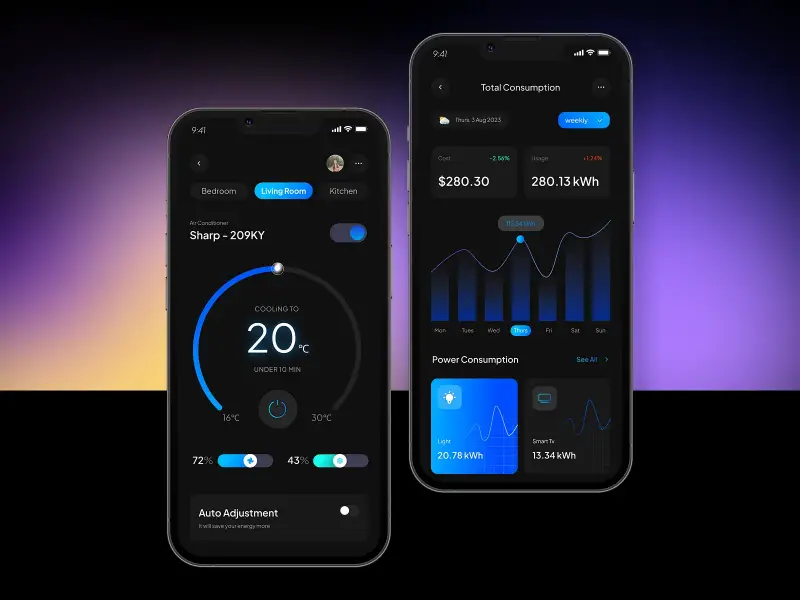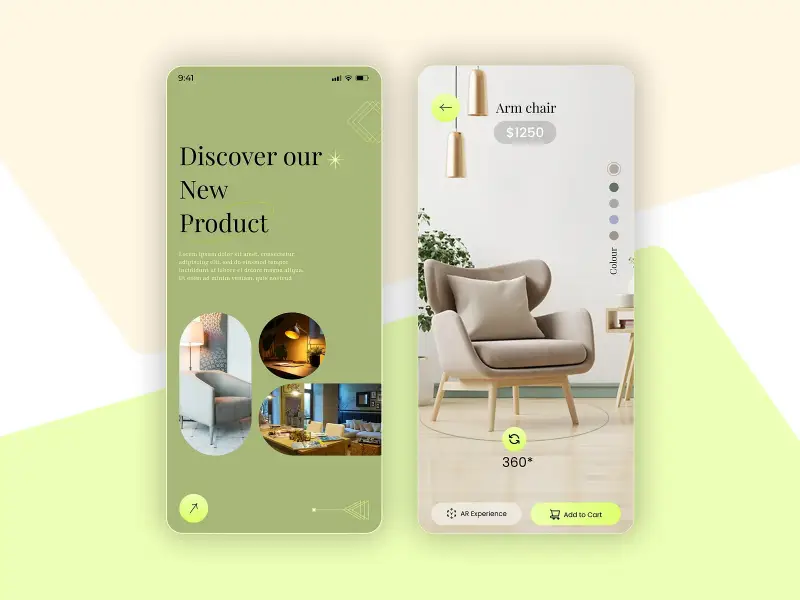Custom Software Development for Startups: Save Time & Money
- David Ho
- 0 Comments
Imagine having software built specifically for your startup’s needs—not generic solutions that force compromises. That’s the power of custom software development for startups. In a world where standing out is everything, a tailored solution can be the game-changer your business needs. The custom software market is booming, growing at 22.5% each year, and for good reason. Startups that leverage personalized tech not only solve their unique challenges but also move faster, smarter, and ahead of the competition.
The startup world moves quickly, and keeping up means more than just great ideas—it’s about execution. The right software can streamline your operations, improve customer experiences, and give you an edge. Think of it as your secret weapon: scalable, adaptable, and designed to grow with you.
But how do you build software that truly works for your startup? Where do you start, and how do you avoid costly mistakes? In this blog, we’ll walk through the best development approaches, tips to reduce risks, and how to pick the perfect team to bring your vision to life. Whether you’re tech-savvy or just getting started, we’ll keep things simple and practical—because innovation shouldn’t feel out of reach.
When Should Startups Outsource Software Development?
For startups considering bespoke software development, outsourcing isn’t just an option—it’s often the smartest path to quality results within budget. Here’s when smart startups typically bring in external teams:
1. When You Need to Validate Your Idea Quickly
Today’s investors want more than compelling pitch decks. They want proof of execution. Having a functional prototype, even at its earliest stage, demonstrates your ability to deliver. Outsourcing lets you build that crucial MVP fast so you can start gathering real user feedback and investor interest.
Bespoke startup software development
2. When Budget Constraints Are Tight
Let’s talk numbers:
- U.S. developers: $100-$150/hour
- Eastern European talent: $25-$50/hour
That’s just developer costs. Add in HR overhead, benefits, and office space for an in-house team, and the savings become even more significant. These cost differences often mean the choice between stretching your runway or running out of cash.
3. When You Need Specialized Skills
Building modern tech products often requires expertise in niche areas like:
- AI/ML implementation
- AR/VR development
- Blockchain integration
Finding these specialists locally can be time-consuming and expensive. Many top accelerators (AI2 Incubator, Techstars AI) now focus exclusively on startups using these advanced technologies. Outsourcing gives you instant access to these hard-to-find skills.
Learn More On:
4. When You Need to Scale Your Team Flexibly
Many successful startups use a hybrid approach:
- Core product team in-house
- Specialized functions (QA, mobile dev) outsourced
This model gives you control where it matters most while staying agile with your resources.
5. When Speed Is Critical
Recruiting in-house developers can take months – from job postings to interviews to onboarding. Outsourcing partners have pre-vetted teams ready to contribute immediately, often cutting your time-to-market in half.
Have a Project Idea in Mind?
Get in touch with experts for a free consultation. We’ll help you decide on next steps, explain how the development process is organized, and provide you with a free project estimate.
Choosing the Right Software Development Methodology for Your Startup
For custom software development startups, choosing the right methodology means balancing speed with quality. The best approaches maintain agility while minimizing risks. Among the most effective approaches are Lean, Scrum, Kanban, and Feature-Driven Development (FDD) – all rooted in Agile principles but tailored for different startup needs.
The Agile Foundation
Before exploring specific methodologies, it’s crucial to understand their shared Agile DNA. These approaches all prioritize working software over documentation, customer collaboration over contract negotiation, and responding to change over following rigid plans. This flexible mindset is particularly valuable for startups navigating uncertainty and rapid market changes.
Lean Startup: Rapid Validation Engine
Eric Ries’ Lean methodology has become the gold standard for early-stage startups. Built around the Build-Measure-Learn cycle, it transforms assumptions into validated learning with remarkable speed.
The Lean approach shines when you need to test product-market fit quickly. By developing minimum viable products (MVPs) and incorporating real user feedback into each iteration, startups can validate their core hypotheses before committing significant resources. This continuous validation cycle helps prevent costly development of unwanted features.
Scrum: Structured Agility
For startups ready to scale their development efforts, Scrum provides the perfect balance of flexibility and discipline. Its time-boxed sprints (typically 2-4 weeks) create natural milestones while allowing for course corrections between cycles.
Scrum’s strength lies in its rhythm. Daily stand-ups maintain alignment, sprint planning sets clear objectives, and retrospectives foster continuous improvement. This structure proves invaluable for startups building out their product with an expanding team, ensuring everyone moves in sync toward common goals.
Custom software development startups
Kanban: Continuous Flow Optimization
When your startup needs maximum flexibility without fixed iterations, Kanban delivers. This visual workflow system excels at managing multiple concurrent initiatives and adapting to shifting priorities.
Kanban’s power comes from its simplicity. The visual board makes work transparent, work-in-progress limits prevent overload, and continuous delivery means features can ship as soon as they’re ready. It’s particularly effective for startups handling ongoing maintenance while developing new features.
Feature-Driven Development: Scaling Complexity
As your product matures, Feature-Driven Development offers a structured approach to managing growing complexity. FDD breaks development into client-valued features, each with clear ownership and completion criteria.
This methodology shines when you need to systematically enhance an existing product. Its upfront design phase ensures clarity before coding begins, while regular feature deliveries maintain momentum. Many startups transition to FDD as their product grows beyond the MVP stage.
Matching Methodology to Your Startup Stage
Early-stage startups typically begin with Lean to validate their concept. As they gain traction, many adopt Scrum for more structured scaling. Teams handling multiple streams of work often incorporate Kanban elements, while established products frequently benefit from FDD’s feature-focused approach.
The most successful startups don’t rigidly adhere to one methodology but rather blend approaches as their needs evolve. The key is maintaining Agile principles while adapting processes to your current challenges and opportunities.
The Do’s And Don’ts of Custom Software Development in Startups
Here’s what to do and what not to do when building bespoke startup software development:
| Do | Don’t |
|---|---|
| Invest in thorough planning – Define clear objectives, features, and milestones before development begins. | Rush into development – Starting without proper planning leads to wasted resources and misaligned outcomes. |
| Prioritize user research – Continuously gather and incorporate user feedback throughout development. | Assume you know user needs – Building without validation often results in unwanted features. |
| Implement continuous testing – Test features incrementally to catch issues early. | Delay testing until completion – End-stage defects are exponentially more costly to fix. |
| Maintain transparent communication – Keep all stakeholders aligned through regular updates and documentation. | Work in silos – Isolated teams create knowledge gaps and duplicate efforts. |
| Build with flexibility – Design architectures that allow for pivots based on new insights. | Over-commit to initial designs – Rigid systems become technical debt when requirements evolve. |
| Architect for scalability – Plan infrastructure and codebase to handle future growth. | Optimize only for current needs – Scaling limitations emerge just when you need growth most. |
| Establish budget controls – Track expenses against milestones with contingency buffers. | Underestimate costs – Unplanned expenses jeopardize runway and force compromises. |
| Develop support processes – Prepare documentation and training alongside product development. | Treat support as an afterthought – Poor onboarding drives away early adopters. |
Essential Software Development Services for Your Startup
Bespoke software development for startups requires different solutions at each growth phase. Here’s how professional teams deliver exactly what you need:
Proof of Concept and Prototype Development
Before investing heavily in development, it’s wise to test if your idea actually works. A proof of concept (PoC) demonstrates technical feasibility, while a prototype creates a basic interactive model. These early versions help spot potential issues, attract initial interest from investors or partners, and ensure you’re building something users truly need.
Minimum Viable Product (MVP) Development
An MVP focuses on launching quickly with just the core features that solve your users’ main problem. This approach lets you gather real-world feedback early, avoid overbuilding, and refine the product based on actual usage rather than assumptions. Many successful startups began with an MVP, using early adopters to guide future development.
Bespoke software development for startups
Full Product Development
Once your concept is validated, end-to-end development takes your product from initial design through final launch. This includes architecture planning, UI/UX design, coding, testing, and deployment. A structured approach ensures quality while keeping timelines and budgets on track—critical for startups operating with limited resources.
Mobile and Web App Development
Today’s users expect seamless experiences across devices. Whether you need a native mobile app, a responsive web platform, or both, developers can tailor solutions for your audience. The right technology choices—like cross-platform frameworks or progressive web apps—can save time and money while reaching more users.
Learn More On:
Technical Strategy and Consulting
Early technical decisions have long-term consequences. Experienced consultants help choose the right technologies, plan scalable architectures, and avoid common pitfalls. This guidance is especially valuable for non-technical founders or teams new to building software products.
Dedicated Development Teams
Instead of hiring in-house developers immediately, many startups work with dedicated external teams. These professionals integrate with your company, providing focused expertise without the overhead of full-time hires. It’s a flexible way to scale your development capacity up or down as needs change.
The right services depend on where you are in your startup journey. Early-stage companies often begin with PoCs and MVPs, while growing startups may need full product development or specialized teams. The key is matching the solution to your current challenges—whether that’s proving an idea, launching faster, or scaling efficiently.
Conclusion
For custom software development startups, every technical decision carries long-term consequences. That’s why bespoke startup software development demands. Get it wrong, and you’ll waste months fixing avoidable mistakes. Get it right, and you’ll outpace competitors while saving thousands in unnecessary costs. At TECHVIFY, we specialize in helping startups like yours build exactly what you need—nothing more, nothing less. The clock is ticking—every week of delay costs startups an average of $8,500 in missed opportunities. Stop researching and start building. Click now to claim your free technical blueprint and pricing consultation. Let’s turn your vision into a product users love and investors fund.
TECHVIFY – Global AI & Software Solution Company
From Startups to Industry Leaders: TECHVIFY prioritizes results, not just deliverables. Accelerate your time to market and see ROI early with high-performing teams, AI (including GenAI) Software Solutions, and ODC (Offshore Development Center) services.
- Email: [email protected]
- Phone: (+84)24.77762.666








